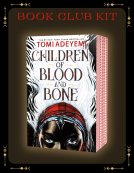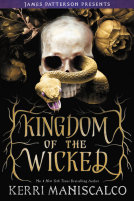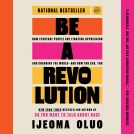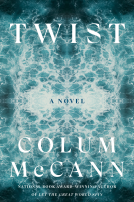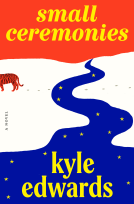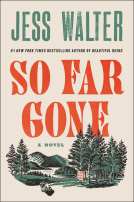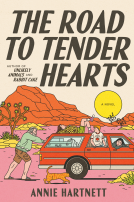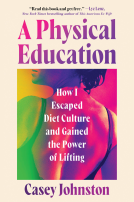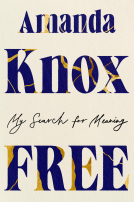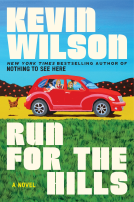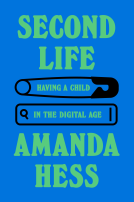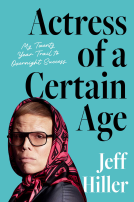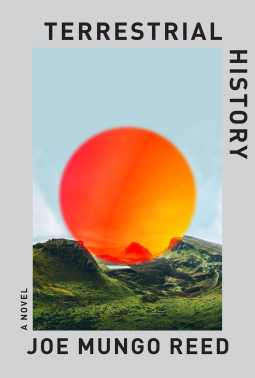
Terrestrial History
A Novel
by Joe Mungo Reed
This title was previously available on NetGalley and is now archived.
Send NetGalley books directly to your Kindle or Kindle app
1
To read on a Kindle or Kindle app, please add kindle@netgalley.com as an approved email address to receive files in your Amazon account. Click here for step-by-step instructions.
2
Also find your Kindle email address within your Amazon account, and enter it here.
Pub Date Apr 08 2025 | Archive Date Mar 31 2025
Talking about this book? Use #TerrestrialHistory #NetGalley. More hashtag tips!
Description
A family saga following four generations on a time-bending journey from coastal Scotland to a colony on Mars.
Hannah is a fusion scientist working in a cottage off the coast of Scotland when she’s approached by a visitor from the future, a young man from a human settlement on Mars, traveling backward through time to intervene in the fate of a warming planet.
Roban lives in the Colony, a sterile outpost of civilization, where he longs for the wonders of a home planet he never knew. Between Hannah and Roban, two generations, a father and a daughter, face down an uncertain future. Andrew believes there is still time for the human spirit to triumph. For his rationalist daughter Kenzie, such idealism is not enough to keep the rising floods at bay, so she signs on to work for a company that would abandon Earth for the promise of a world beyond.
In exploring the question “What if you could come back to the past and somehow change it with technology?” Joe Mungo Reed has written an immersive story of hope, hubris, and sacrifice in the face of a frighteningly precarious present.
About the Author: Joe Mungo Reed is the author of the novels Hammer and We Begin Our Ascent. He teaches creative writing at the University of Cambridge.
Advance Praise
"Science Fiction, lyrical lament, generational fissures, apocalyptic reality… this is a novel that strikes all the notes. Terrestrial History is smart, engrossing, devastating, and brought to an impeccable finish." -Joy Williams, author of Harrow and The Visiting Privilege
Available Editions
| EDITION | Hardcover |
| ISBN | 9781324079378 |
| PRICE | $29.99 (USD) |
| PAGES | 272 |
Available on NetGalley
Featured Reviews
a haunting and powerful story about how one family experiences the impacts of a changing political and ecological landscape, spanning 85 years and four generations. i loved the multigenerational story, jumping POVs and timelines, how each voice was undoubtedly distinct and how their stories ultimately weaved together in a beautiful, cryptic, haunting way. there is a hopefulness and sorrow that co-exist in these pages that i haven't found in any other book. i will be thinking about this story for a long, long time.
Thank you Joe Mungo Reed and W.W. Norton & Company for the ARC!
There’s a certain experience I think all readers chase - that feeling of wonder, that gravitational pull of an incredible book. There’s no recipe to achieve that rare feeling, one I remember from my childhood and only experience sparingly in adulthood. Terrestrial History reminded me of this feeling, and I will be telling everyone I love about this book for a long time.
Terrestrial History grapples with the complexity of the role of technology in climate change. It tells the story of four generations of one family, split far across time, as they adjust and react to the changing landscape of their reality. The novel opens with Hannah in the summer of 2025, living in a small cottage on the coast of Scotland, and working hard, if not obsessively, with fusion technology. Hannah’s grown son, Andrew, takes a different tact, becoming involved at the political level to effect change. Andrew’s daughter, Kenzie, is much more practical and less emotionally driven than her father. She and her son, Roban, are pioneers in a new and unknown landscape.
Family dynamics, the effects of climate change and the work trying to mitigate the damage of it, and the power of technology are faced head-on from multiple perspectives at different times. The chapters alternated between different characters and different times, giving the novel a sense of tension as the storyline changed. There was something about this book that I couldn’t put my finger on, that will make it stick with me long after I have finished. It evoked all sorts of feelings. I have this sense of impending doom deep in me and this novel basically confirmed that sense. As I read further, the feeling in the out of my stomach grew more intense. However, this wasn’t a depressing read at all. It was powerful, and made me think. I will be taking my time thinking about this one in the days to come.
I would like to thank W.W. Norton & Company and NetGalley for the chance to review an advanced copy of this remarkable book.
In what felt like one of those moments where the universe likes to laugh and show you that it’s paying attention, I started reading Joe Mungo Reed’s Terrestrial History on the same day that a friend of mine sent me a video showing that the current administration in the United States was going to be implementing an executive order that would promote the usage of plastic straws.
No matter where you fall on whatever limp debate exists about plastic straw usage and their overall impact on the environment, it has been impossible to ignore the effect that humanity and industry have had on our planet as we’ve all experienced a seismic shift in how the place that we call home is reacting to our ever-expanding presence.
Because of this shift, a significant chunk of fiction writing has emerged that imagines possible futures, possible solutions and, of course, possible endings to our current predicament. Lydia Millet released A Children’s Bible in 2020 right at the cusp of a worldwide pandemic and Joy Williams released Harrow as we moved into what we were hoping was a post-pandemic world. To me, both of these novels represent a high mark in what has often been made reference to as climate fiction or “cli-fi”. With Terrestrial History, Joe Mungo Reed has created a document that deserves to stand not just among the absolute best of this hyper-specific genre tag, but also as one of the best works of this young year.
Terrestrial History follows four narrators, each from a different generation over a period of 85 years beginning in our present day of 2025. Hannah is a meticulous and unparalleled expert in the study of fusion science whose unique ideas have branded her a near-pariah among her peers. Andrew follows a strict moral code and believes in the inherent goodness of people to the point that he runs for office in an attempt to help shape and fix a world that is mired in climate panic for his daughter. Kenzie has spent her life wrestling with balancing her own ambitions and pragmatic beliefs with that of her more dreamy father and working to find a common ground that allows both of their goals to be realized without compromise. Roban is inquisitive and determined and part of the first group of children that were born on Earth’s first colony on Mars whose fascination with what those in the colony refer to as “Home” leads him to make shocking discoveries about the universe and about his family history.
The story begins at a home on the edge of the coast in Scotland as Hannah glances out to the ocean and notices a strange man walking towards the beach unbothered by the tides that surround him. Hannah’s reaction to this man explaining that he has arrived here from a colony on a distant planet and from the future is to accept this reality with wonder and with open arms. From here, Terrestrial History charts a path that spans four generations and two planets, dipping in and out of disparate time periods to weave a story not just of what ultimately happened to Earth, but how the events that led to part of humanity exiting the planet was shaped by the family at the heart of the story and how it affected them.
Joe Mungo Reed’s characters feel real and lived-in to a point of feeling like you have met all of them or have been aware of them at some point in your life. As you take in each chapter and each separate voice, the distinct differences in their tones and mannerisms are evident as it is always clear who is speaking to you. Through these scattered stories that jump around these eighty-five years, there is a realization that the actions of each individual generation - the little hesitations, the bold statements and actions taken, the unspoken thoughts - all have ramifications on the future…and the past. Terrestrial History both exists in a reality that feels all-too-possible and one that feels just enough outside the realm of possibility that it will make you wonder, hope and dream about what we still have left to discover about our universe and about ourselves.
 Librarian 1514582
Librarian 1514582
I thought this was a really fantastic book. I tend to like books with multiple POVs whose characters intersect with each other, and this book has it. I really cool science fiction book that also is grounded in the reality of family and love. I really loved all of the characters, and felt moved by their stories and growth. Loved this book!
 Reviewer 1412626
Reviewer 1412626
I really enjoyed this book! I'm a sucker for multi-generational stories, so it was right up my alley. I think that this style of storytelling worked well for this topic. Watching climate change rapidly alter the lives of a family over the course of a few generations helps emphasize the severity of the problem and the rate at which it can change life as we know it. I liked seeing the ways that one character's decisions impacted their children and grandchildren, as well as how interconnected everything was.
I found the characters compelling, especially Roban. I loved his first chapter and the exploration of definitions/the evolution of language. It was a fresh way of considering ways in which living on Mars would impact specific aspects of society that are not commonly mentioned (in this case: language).
In terms of bigger themes, Terrestrial History delved into a lot of pressing questions regarding climate change. For example: how should we leverage technology in the face of this crisis? How do we adapt (or do we take another path altogether?). How do politics and climate change intersect? How do we go on living in the face of an issue like this? What makes a life well-lived; what makes a decision a good one? I appreciate how this book prompted me to consider these questions, while also immersing me in an engaging narrative.
While there is a lot of sorrow in this story, I finished the book feeling hopeful and grateful. In many ways, I found Terrestrial History to be a love letter to Earth. It made me want to lay in the grass with my eyes closed and soak up every moment I have on this planet.`
Thank you to NetGalley and the publisher for a free ARC in exchange for an honest review!
